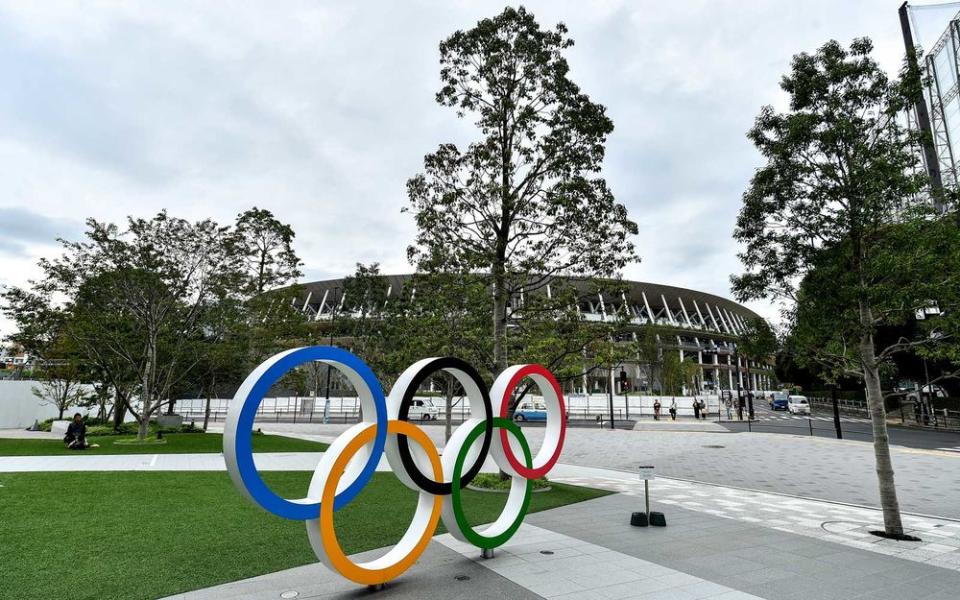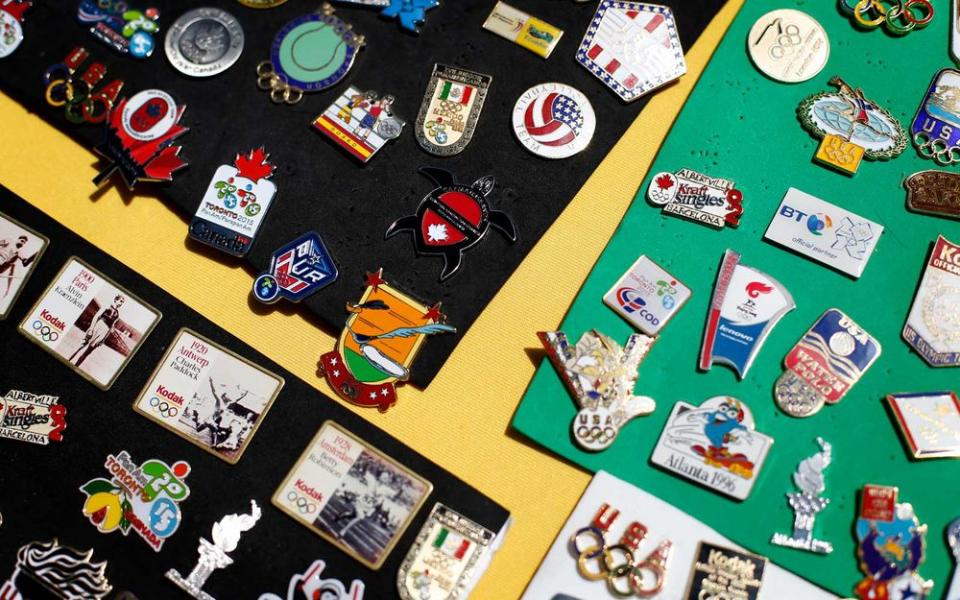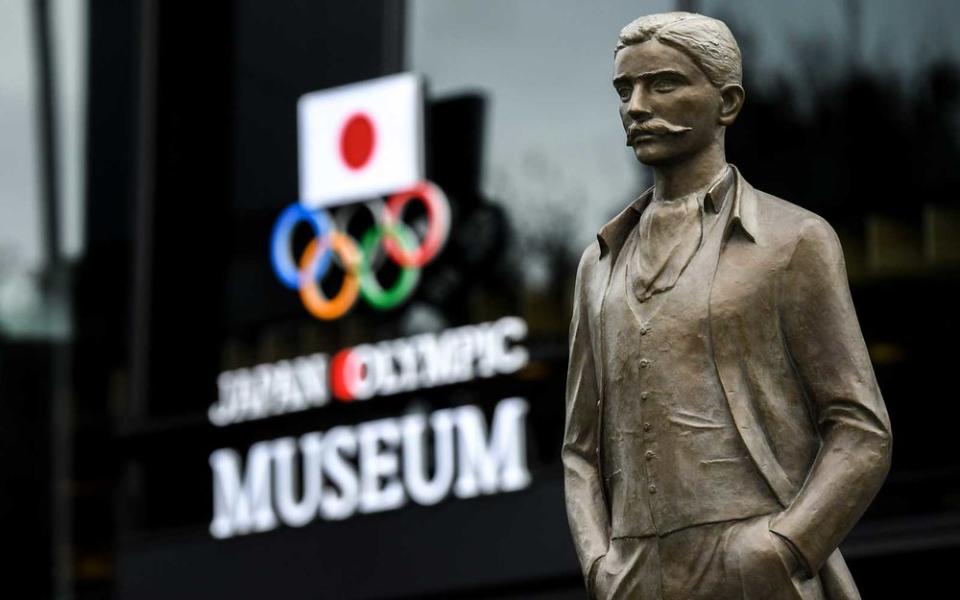Olympics 2020 Tips for How to Travel to Japan
To fully understand the culture of the Olympics, you have to experience it firsthand.
My crash-course in Olympics life was working at the London 2012 Olympics, where I admittedly made some rookie mistakes — some of which could have been avoided if I were a more seasoned traveler, rather than a 20-year-old intern. To reacquaint myself in Olympics culture ahead of Tokyo 2020, I recently toured the Kanto region of Japan, which between Tokyo and the surrounding prefectures will host 31 of 33 Olympic sports this summer.
In a way, the Olympics function as a global time stamp, reflecting the world’s turbulence, documenting cultural and technological phenomena of that year, and showing our evolution of strength through the lens of sport.
The Olympics I worked in 2012 predated the iPhone 5. I didn’t have an Instagram account yet, though I watched from the second row as Team USA won all-around gymnastics gold and accidentally spoiled the victory on Facebook for my EST friends who wouldn’t see it air for another six hours. London 2012 was three Olympic games before Russian athletes competed under a neutral flag as “Olympic Athletes from Russia.” It was the second of Usain Bolt’s three Olympics to date, and four years before South America hosted their first games in Rio.
The upcoming Tokyo 2020 games will show an entirely new side to history, vastly different from the world we saw four years ago in Rio 2016 and four years before that in London. If you’ll be there to bear witness to the culture, vibrancy, and global dialogue, here’s what I wish I’d known before heading to the Olympics.

The Logistics
Unsurprisingly, the most important takeaways I had from traveling to an Olympic destination were logistics related. First and foremost: There will be events outside the city. The host city rarely hosts every event — there’s just not enough space to do so. While in Japan, I toured the surrounding prefectures involved in the 2020 Olympics and discovered not only their sizable contributions to the games, but how much they have to offer travelers flocking to Tokyo. Three of the closest prefectures to Tokyo — Shizuoka, Yamanashi, and Kanagawa — will each see the Olympic games spill over into their territory and are preparing to host an influx of Olympic tourists.

The fact that the entire country rallies behind an Olympics — and that the games extend beyond the city limits—is a perfect excuse to use the host city as a jumping-off point, rather than the final destination.
There are a slew of reasons why a city would want to host the Olympics (infrastructure boosts, prestige, money), and tourism is, of course, a major part of that. While the Tokyo neighborhoods are preparing to welcome guests from around the world, so are the farther-reaching parts of the country. Sapporo, for example, will play host to both soccer and the Olympic marathon — and serves as a perfect starting point for a northern Japanese adventure. In Yamanashi Prefecture, the cycling race will wrap around Lake Yamanaka in full view of Mount Fuji culminating at Fuji Speedway (in Shizuoka Prefecture). It’s a great opportunity to spend time at the five lakes of Mount Fuji, or take in a few days at an onsen (Japanese hot spring) town in Shizuoka.
Another major factor regarding logistics is, of course, accommodations. The Olympic events generally happen on the outskirts of the city — because that’s where cities have the space to construct stadiums and facilities. There’s no one right answer when it comes to choosing where to stay. Being next to the arenas gets you quick-access to Olympic events and spares you a lengthy commute to your favorite venues. Alternately, you can opt for accommodations in the heart of the Olympic city, which allows for optimal sight-seeing. During the London 2012 Olympics, I lived in Russell Square because it put me right in central London, despite being an hour from the Olympic Park in Stratford via metro.
The two primary zones for the Tokyo Olympics are the Tokyo Bay Zone, right on the water, and the Heritage Zone, slightly more inland. Accomodations for both areas are in high demand. However, if you can’t secure a reservation in either zone, there are plenty of neighborhoods in Tokyo that are an easy commute to the Olympic zones via public transit.

The Culture
The Olympics has always been about so much more than the sport. There are deep-seated traditions to follow at every global sporting event — like the Pimm’s Cups and bowls of strawberries and cream at Wimbledon — that just don’t wind up on your radar until you’re there in the flesh.
The first tradition I wish I’d known about: pin trading. In all seriousness, Olympic pin trading is an event in its own right. Volunteers, fans, employees, coaches, and athletes wear their pin selection like a badge of honor displayed on their access-lanyards. And some of these pin-traders have been at it for years, offering vintage pins from ‘70s Olympic games in exchange for brand-new 2020 pins. As an Olympic first-timer, keep your eyes peeled for good pins and an opportunity to get into the trading game.
The team houses are also a big part of Olympic culture when you’re on the ground. Team USA’s house for Tokyo 2020 is east of Roppongi in Minato City, not far from Team Italy’s house (or rather, Casa Italia). I’d love to be able to report on the happenings inside the team houses, but I’ve never successfully entered one. The team houses are a) notoriously hard to find, and b) not necessarily open to the public. Some houses are in plain sight — I stumbled upon a House That Shall Not Be Named while at the London Olympics but was unable to enter despite my charming-if-misguided efforts to speak the necessary tongue. Other houses are deliberately tucked away, or won’t allow entry to outside guests. Think of the team houses like a Hogwarts’ house common room — you can only enter if you know where to look and have the right password (fortuna major, probably). While in Tokyo, gather word-of-mouth and social media intel to figure out which houses are open to the public, serving food, and offer potential run-ins with athletes. At the 2018 Winter Olympics in Pyeongchang, the Sweden House served Swedish meatballs and the Korea House had a K-pop booth.
In terms of attending Olympic events, here’s the best pre-Olympics advice I was given: Follow the home team. You should expect the dominant teams and the host country’s team to be featured prominently at each event — so, prepare accordingly. As a spectator at the London 2012 gymnastics events, I followed Great Britain’s team as closely as Team USA. Brushing up on Team Japan’s presence in your preferred events will allow you to participate more in the global Olympic experience. For me, half the fun of going to events was knowing the athletes and how they were faring in competition, which is a popular sentiment among spectators.

The Impact
It may sound trite, but experiencing the Olympics firsthand taught me the sheer magnitude of the games’ global impact and historical relevance. On my last day in Tokyo, I went to the Japan Olympic Museum, which just opened in September 2019. It’s in Gaienmae, directly under Shinjuku, across from the New National Stadium.
At the museum, which I highly recommend visiting while in Tokyo, I spent about half my time looking at a blown-up diagram showing the flag of every country that’s competed in each Olympic games. At the 2018 Pyeongchang Olympics, two African flags made their winter Olympics debut: Nigeria and Eritrea. At the 1952 Helsinki Olympics, the Israeli flag showed up for the first time, having just become a country four years prior.
Of course, there are negative world events that pop up on the timeline of Olympic history, but the larger point is this: The Olympic games chronicle history on a global level, and contribute to unifying countries that might not otherwise stand next to each other. And that’s a sentiment that feels quite tangible when you spend time in an Olympic host city while the games are underway.
That being said, if I were to repeat my Olympic experience, I would have gone in with more global context, equipped with more knowledge of my host country. Before heading into Tokyo 2020, learn the Japanese superstar athlete’s names (hint: keep an eye on Naomi Osaka, who beat Serena Williams in the 2018 U.S. Open final). And don’t forget to pick a few places you want to travel in Japan after taking in some of the Olympics — there’s an entire country begging to be explored.

